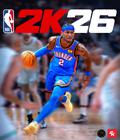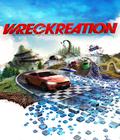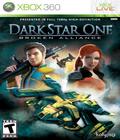There are few, if any, space simulation games for console gamers. The last console space simulation title was the port of the PC game Starlancer on the Sega Dreamcast. In contrast, the PC market has seen its fair share of space simulations, though there aren't as many as one would expect. While many have attempted to marry a starfighter shooter with the intricacies of an RPG, few have done it as well as Elite, a now-classic PC game hailing from 1984. In 2006, a small German developer tried to make a space simulator called DarkStar One, and while it didn't become the definitive space simulation game, it did fairly well and developed a small fan base. Unfortunately, the developer folded before a proper sequel could be fleshed out. Four years later, the name returns with DarkStar One: Broken Alliance for the Xbox 360. It's safe to say that Xbox 360 gamers have not experienced anything like this before on the console, but the question is whether it will make them fans of the genre.
Broken Alliance opens up with a spaceship pilot being ambushed and killed by what initially appears to be a random group of mercenaries. You play the role of Kayron Jarvis, a hotshot pilot and son of the man who was killed in space. Upon your father's death, you inherit a spaceship named the DarkStar One, which has powers of transformation. With such a powerful ship at your disposal, your mission is to find those responsible for your father's death and make them pay for their crimes.
The gameplay is mostly spent inside of the ship. After some tutorial missions, you'll explore the universe. You can immediately take off and explore the area around you, or you can consult your logbook and mail terminal to choose a mission. While you can proceed through the story missions to complete the game, there will be some artificial roadblocks, such as having to obtain a certain ship part in order to travel to other parts of the galaxy. In order to get the credits to obtain the part, you'll need to take on side missions.
Depending on the mission you undertake, you'll build your experience in one of six different attributes, which affect how the world reacts to your presence. For example, building your trader or mercenary attributes will make you a more likely target for space pirate ambushes, but building on your pirate attribute makes it difficult to dock in more civilized areas of space. Aside from the ship parts that you can buy, you can also seek out artifacts when you're between missions. These artifacts, located in asteroid fields, act as variable power-ups since you can use the gained points to upgrade any part of the ship. For example, you can use the points to accommodate a better shield system or more slots for guns or thrusters. With at least six major space systems to explore and a large number of subsystems located within, prepare to explore just about every nook and cranny to fully power your ship. Broken Alliance has over 30 story missions, but with the addition of side missions and artifact exploration, you're looking at more than 30 hours of gameplay.
If everything you've read so far seems familiar, there's a reason for that. This is not a sequel to the 2006 PC game, nor is it a remake. This is a port of the original game. Everything, from the menus to the cut scenes to the missions, comes from that original code. Only a few technical aspects have changed, such as the entire game being in full 1080p HD, but those looking for new modes will be disappointed. If you've played the original PC game, you've already played this version and shouldn't expect anything new from it. The PC review of the game makes a great companion piece to this article.
Despite being a four-year-old title, the gameplay still holds up pretty well. Even though it is being pegged as a space simulator, you don't spend much time trying to repair your ship or worrying about how to properly route your power for maximum efficiency. For the most part, you'll fly around completing missions and searching for artifacts when possible, making it enticing for non-fans of the genre to try out this title. When it comes time to upgrade your craft, the menus are rather intuitive, so you won't make any "accidental" upgrades. This holds true for both the ship and plasma weapon upgrades, so it's rather easy for the player to make a decent ship with powerful plasma weaponry.
The simplicity also comes through in the trading system. At each dock, you'll be given a handy trading gauge, so you immediately know where you can get the most money for the elements you've gathered. As for combat, it rarely gets more complicated than simply pointing at enemies and shooting them. For those not accustomed to the practice of leading shots in vehicle-based shooters, the game does a good job of giving you a reticle of sorts to get acclimated to the practice. The simplicity of the details and the game's inherent open-world nature make most of the title a fairly enjoyable experience.
Not all of the gameplay aspects are good, however. Despite the seemingly limitless amount of missions, almost all of them boil down to cargo transport, escort missions or pirate eradication. It helps that the missions are pretty enjoyable and you can choose to do them in any order, but they rarely differ aside from the context in the briefing screen. The other aspect that doesn't do so well is the static nature of the story. No matter what path you choose, the story-based missions don't take all of your actions into account. You can play through the game multiple times just to check out the different missions and other people's reactions to you, but the events leading up to the conclusion will always be the same. Since some gamers are used to other titles providing multiple endings, this would be something of a letdown.
A few critics thought the PC version's controls were complicated, but thankfully, the same complaint cannot be said of the Xbox 360 port. Ship movement is handled well by the analog sticks. The left thumbstick determines where the ship is pointed, and the right thumbstick alone activates forward and reverse thrusters. Using the right stick in conjunction with the left trigger helps regulate speed and initiates barrel rolls. The face buttons and the d-pad handle a few functions, like latching on to floating cargo. The commands not covered there can be accessed with the right bumper button, and you use a radial menu to select the command. The number of commands might make the control scheme seem pretty complicated since it tries to cram everything into a limited number of buttons, but in practice, the controls work out nicely. There is rarely a time when the controls feel too overwhelming, and since the controls are very responsive, the game holds its own against the PC counterpart.
Along with the controls, the graphics have received a bit of an overhaul. The geometry of the ships isn't brimming with exciting designs, but they don't look as harsh as one would expect. This is certainly helped by the fact that the textures look clean and detailed, with no blurry or stretched textures. The particle effects look fine, as does your cockpit, which you'll be looking at for most of the game. Since your missions all take place in space, the environments aren't exactly diverse, but the number of objects that populate the area makes it a little more interesting.
It all moves at a solid 60 frames per second, with no frame drops or slowdown in sight. Oddly enough, the graphical package takes a hit in quality once you leave combat. The menu has the view of the background constantly rotating, which is more annoying than impressive. The transition between combat and in-game cut scenes isn't as smooth as one would like, resulting in times when you can see ships and other objects materialize out of thin air or freeze on-screen before the game returns to normal. The most intriguing issue, however, is with the CG cut scenes, which usually represent the high point of a game's graphics. The character animation seems exaggerated, and the clarity isn't very good. After watching a few of them, you'll wish that the game had stuck with the in-game engine for the cut scenes.
The sound also hasn't changed since the original PC release. The music is bombastic but fits well with the missions. It's memorable in that it tries hard to invoke the mood of other sci-fi movies, and it doesn't sound too bad in doing so. The effects are also quite nice yet familiar. The sounds of lasers being fired and ships getting blown to pieces isn't anything you haven't heard before, but it is more pleasing than offensive. The voices, however, can be considered both off-putting and unintentionally hilarious. From Kayron to the space pirates and the docking attendant, the delivery of each voice actor ranges wildly from indifferent to completely over the top. Not one voice in the large cast of characters is delivered in the middle of that range or delivered perfectly for the situation. Depending on how you looked at the acting for the original Resident Evil game on the PSOne, you would either relish in how bad everything is or just play the game with the sound turned off.
There are certain elements of DarkStar One: Broken Alliance that have not withstood the test of time. The voices seem much more amateurish than before, and the cut scenes follow suit due to the exaggerated character animations. However, the gameplay is timeless and the title's depth provides a good amount of gameplay for your money. Even if it weren't the only game of its type on the console, it would be easy to recommend Broken Alliance as a purchase for anyone looking for a spaceship shooter with some depth. It's not the best surprise game of the summer, but it is an enjoyable one.
Score: 7.0/10
More articles about Darkstar One











 DarkStar One: Broken Alliance fast-paced action within a vast and authentic universe that sees players exploring the vast reaches of space, encountering, battling and trading with six mysterious alien races in a quest to unravel the mysterious death of the protagonist’s father.
DarkStar One: Broken Alliance fast-paced action within a vast and authentic universe that sees players exploring the vast reaches of space, encountering, battling and trading with six mysterious alien races in a quest to unravel the mysterious death of the protagonist’s father.













































